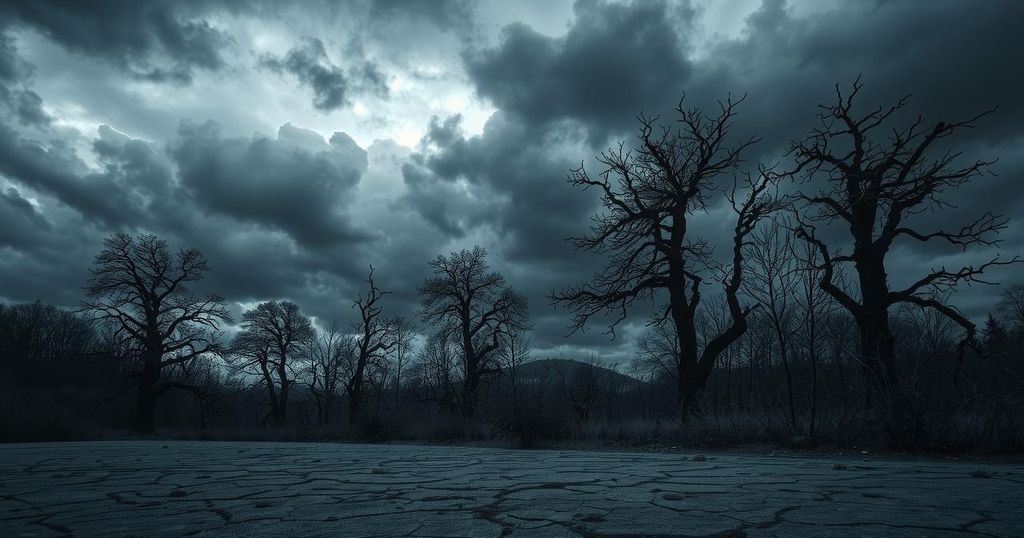Conflicts
Politics
“ FACE THE NATION, ASIA, BLACK SEA, CUBA, DIPLOMACY, EUROPE, EUROPE/ASIA, FEDERAL SECURITY SERVICE, HOUSE, INTERNATIONAL RELATIONS, KYI, MOSCOW, NORTH AMERICA, PUTIN, RIYADH, RUSSIA, RUSSIA-UKRAINE WAR, RUSTEM UMEROV, SAUDI ARABIA, SERGEI BESEDA, SOUTH AMERICA, STEVE WITKOFF, UKRAINE, UNITED STATES, US, VENEZUELA, VLADIMIR PUTIN, WAR, WASHINGTON, WHITE HOUSE, WHITE HOUSE NATIONAL SECURITY COUNCIL
Sophia Klein
U.S. Delegation Pursues Ceasefire Discussions in Ukraine Conflict
The U.S. delegation plans discussions with Russian officials to pursue a ceasefire in the Black Sea and broader cessation of violence in Ukraine. Led by Andrew Peek and Michael Anton, meetings follow recent talks with Ukraine diplomats. Despite a recent agreement, the situation remains tense, with ongoing military actions reported from both sides, while Trump emphasizes efforts to stabilize the conflict.
The U.S. delegation is set to engage in discussions with Russian officials to seek progress regarding a ceasefire in the Black Sea and an overall cessation of violence in Ukraine. This follows prior talks with Ukraine diplomats, showcasing U.S. President Donald Trump’s initiative to halt Russia’s ongoing military actions. The discussions are led by Andrew Peek from the National Security Council and Michael Anton from the State Department, signifying a united front in addressing the conflict.
The primary objective is to establish a maritime ceasefire, which would facilitate unhindered shipping traffic in the Black Sea region. National security adviser Mike Waltz revealed that representatives from the U.S., Russia, and Ukraine are meeting in Riyadh to negotiate further beyond the Black Sea ceasefire, including discussions on verification measures and peacekeeping efforts along the contentious control lines between the two nations.
Russia’s delegation is expected to include Grigory Karasin, who chairs the Federation Council’s Foreign Affairs Committee, alongside Sergei Beseda, an adviser to the Federal Security Service’s director. Ukraine’s defense minister, Rustem Umerov, announced plans for protective measures on energy infrastructures during discussions with U.S. officials.
After Russian military advances in 2024, President Trump shifted U.S. policy, initiating direct talks with Moscow and suspending military aid to Ukraine. Special envoy Steve Witkoff downplayed concerns surrounding potential further Russian aggression, asserting, “I just don’t see that he wants to take all of Europe.”
While Trump aims to conclude Europe’s longest conflict, his overtures towards Putin have raised alarms among European allies, given historical U.S. commitments to counter Russian expansionism. The ongoing war has resulted in substantial casualties and extensive destruction across Ukraine.
Putin recently indicated support for a U.S. truce proposal, although he stipulated that his forces would continue operations until certain conditions are met. Both American and Ukrainian representatives are working to refine the details of potential ceasefire mechanisms, including compliance and monitoring measures.
A tentative agreement for a temporary halt on strikes against energy infrastructure had been initiated, albeit it fell short of a more comprehensive ceasefire. Trump expressed cautious optimism regarding the situation, stating that efforts to control the escalation were “somewhat under control,” with hopes for a more extensive ceasefire within weeks, targeting an agreement by April 20.
The ongoing discussions between U.S. and Russian officials signify an essential step towards achieving a ceasefire in the war in Ukraine. While initiatives to restore peace continue, concerns regarding future Russian expansion remain prevalent among European allies. The complex dynamics involve addressing control measures and continued tensions on the ground as negotiations evolve.
Original Source: www.arabnews.com








Post Comment